Speaker bios
On this page
Speaker bios

Professor Papaarangi Reid (Te Rarawa)
Papaarangi has tribal affiliations to Te Rarawa in the Far North of Aotearoa and her research interests include analysing disparities between indigenous and non-indigenous citizens as a means of monitoring government commitment to indigenous rights. Papaarangi is Tumuaki and Head of Department of Māori Health at the Faculty of Medical and Health Sciences, University of Auckland, New Zealand. She holds science and medical degrees from the University of Auckland and is a specialist in public health medicine. Papaarangi is also an Honorary Fellow of RACS.
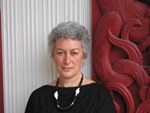
Professor Margaret Mutu
Margaret is of Ngāti Kahu, Te Rarawa, Ngāti Whātua and Scottish descent. She is the Professor of Māori Studies at the University of Auckland where she teaches and conducts research on Māori language, tikanga (law), history and traditions, rights and sovereignty, Te Tiriti o Waitangi and treaty claims against the English Crown, constitutional transformation and Māori - Chinese encounters.
Margaret is the chair of her iwi parliament, Te Rūnanga-ā-Iwi o Ngāti Kahu of the Far North and of two of her marae. She has been a mandated representative of Ngāti Kahu and of Māori in a number of national and international fora. She has three children, six grandchildren and a huge extended family.
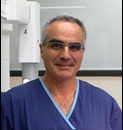
Professor Jonathan Koea
Jonathan (Ngāti Mutunga, Ngāti Tama) is Māori Trainee Liaison Lead at RACS. A graduate of the University of Auckland School of Medicine, he undertook general surgical training in New Zealand with post fellowship training in surgical oncology and hepatobiliary and pancreatic surgery at Memorial Sloan-Kettering Cancer Centre in New York City.
Jonathan is head of the upper gastrointestinal unit at Waitemata District Health Board. He is a member of American Society of Clinical Oncology, CommNETS and the NETWORK! Collaborations, the Upper Gastrointestinal and Surgical Oncology Sections of the Royal Australasian College of Surgeons and HPB Section editor of the ANZ Journal of Surgery. Jonathan’s research interests include surgical and ablative treatment for upper gastrointestinal cancers and NETS, quality in surgery and indigenous health.
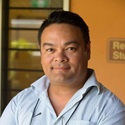
Professor Kelvin Kong
A Worimi man from the Port Stephens region, north of Newcastle, Kelvin comes from a medical family, whose support and encouragement he credits for his success. His mother Grace is a community nurse and women’s health worker, his father Tony is a GP in Malaysia, and his twin older sisters are also doctors: Marlene is a GP working in Public Health in Sydney and Marilyn is an obstetrician and gynaecologist in Grafton.
Kelvin is an ENT Surgeon based in the Hunter region of NSW; he regularly travels to remote Australia to provide specialist ENT services to Indigenous patients. His clinical practice is complemented by his ongoing research into the causes and treatment of ear disease, together with his involvement in community outreach programmes designed to improve access to healthcare and break cycles of disadvantage for Indigenous Australians. He was the first Indigenous Australian surgeon and is now one of Australia’s leading ENT surgeons with a driving passion to reduce the disparity between health and learning outcomes for Indigenous and non-Indigenous Australians.
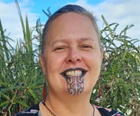
Ms Riana Manual
From Manaia in Pare Hauraki, Riana is a registered nurse practitioner and enjoys a career that sees her work across many different parts of the health sector. A skilled, strategic, and visionary leader within the Māori and health sectors, with extensive experience leading kaupapa Māori organisations, Riana Manuel is the first to lead Te Aka Whai Ora as it works to improve the health outcomes of Māori. Before joining Te Aka Whai Ora, Riana was Chief Executive of Hauraki Primary Health Organisation and Te Korowai Hauora o Hauraki.
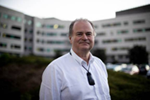
Dr Rawiri McKree - Jensen
Ngāti Raukawa. Formerly a resource teacher of Māori language, Rawiri completed his medical training at Middlemore Hospital in South Auckland in 2000. Rawiri has provided clinical teaching, Te Reo and Tikanga Māori programmes for Māori health professionals throughout the country for several years. Chairman of Te Ataarangi Trust (a national Māori language organisation), and Chairperson of Te Ohu Rata o Aotearoa (Māori Medical Practitioners Association). Rawiri self-published a Māori medical phrase book in 2006. Rawiri is now the Chief Medical Officer for Te Aka Whai Ora - Māori Health Authority.

Mr Neil Waka
Neil (Te Atiawa, Ngāti Porou) is a New Zealand broadcast journalist (radio and television) and one of the first of Māori ethnicity to break into mainstream television as a news anchor for more than two decades. He is also one of only a handful of news anchors who has held a full-time news presenting role at the two largest mainstream networks, TV3 and TVNZ.
When he departed television, he took on a corporate role with global organisation General Motors Holden New Zealand for five years before moving to Coca-Cola Amatil New Zealand as Head of Corporate Affairs NZ & Fiji.
After nine years out of the media spotlight, Neil was again back on New Zealand television screens as a guest sports news presenter for Newshub's AM Show prior to Christmas 2019. Neil currently heads Whakaata Māori current affairs show Te Ao Tapatahi.
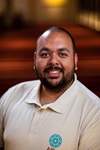
Dr Jonathan Newchurch
Jonathan is a general practice registrar, working at Nunkuwarrin Yunti, an Aboriginal Health Service in Adelaide. Born and raised in Adelaide, he is descended from the Narungga and Kaurna peoples of South Australia.
Jonathan undertook medicine at the University of Adelaide, graduating in 2011. He spent two years working in the public hospitals of Adelaide before commencing general practice training. Since graduating he has been involved in the teaching of medical students on placement in the hospitals, which earned him the title of Clinical Associate Lecturer with the University of Adelaide. During university Jonathan was involved with the Rural Medical Students Association, which included him being on the council. They promoted rural medicine, supported rural background students and encouraged working in rural Australia.
